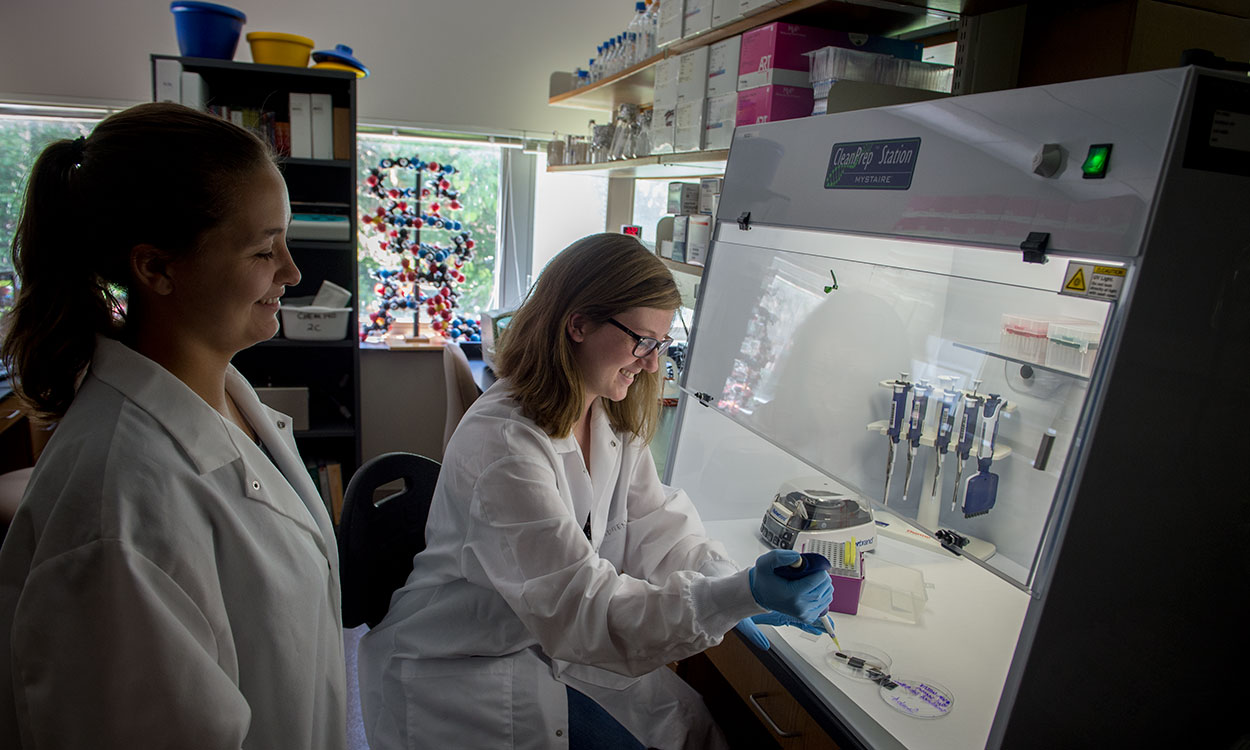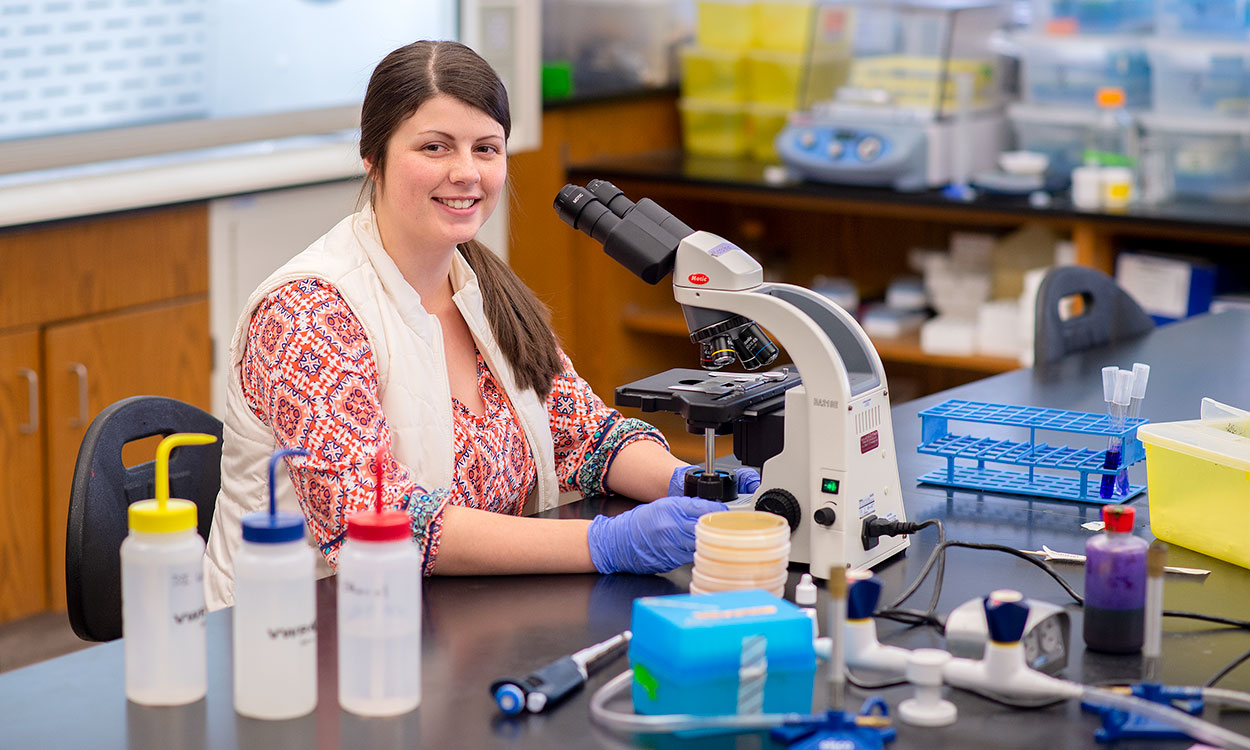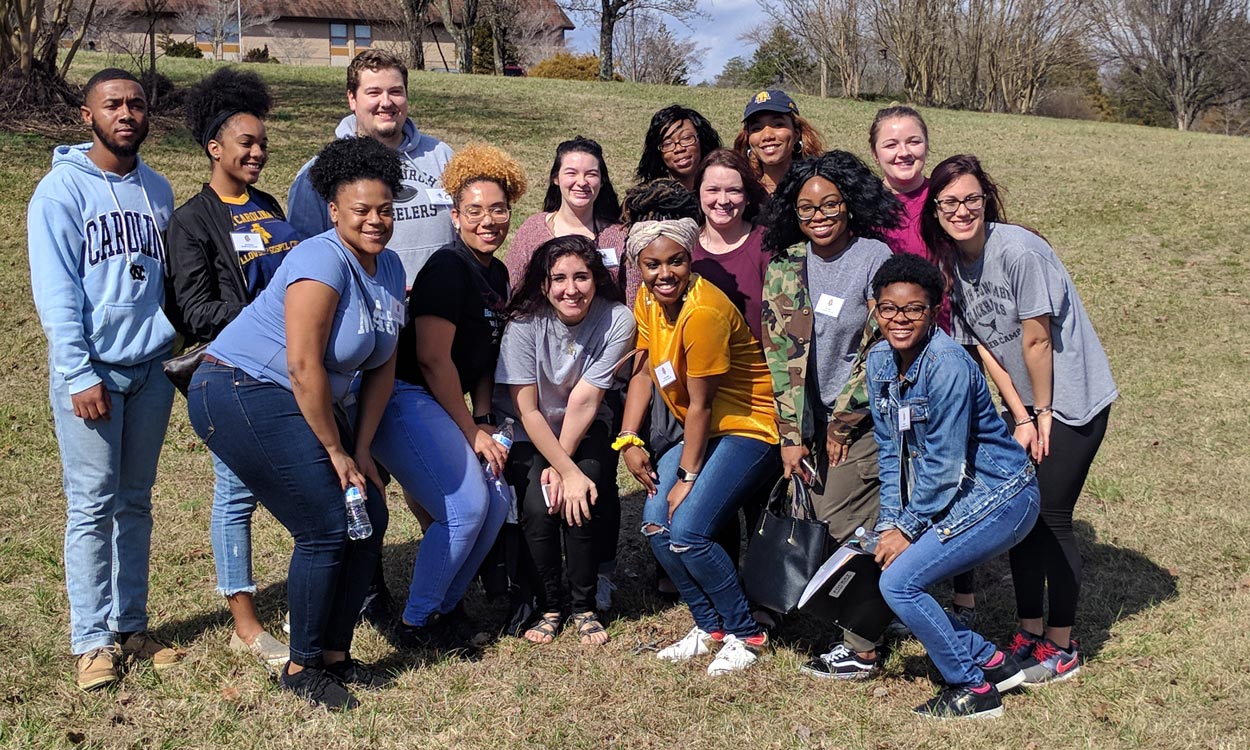Summer Undergraduate Research Program makes scholar team selections

The Summer Undergraduate Research Program, in its fifth year, will officially start Monday, June 1, and continue until Friday, July 24, with an annual symposium for presentations of research findings to be scheduled during the fall semester.
Selections have been made for the 2020 Summer Undergraduate Research Program, an intensive eight-week scholarly activity at Western Carolina University that this year will be implemented with distance learning and online research components.
The program is an initiative overseen by the Office of the Provost and the Honors College, and is open to all WCU undergraduates. To be considered for the program, current students interested in participating had to partner with a faculty member and submit a proposal describing their research project and its goals. Students selected to participate had their proposals reviewed by a committee of faculty representatives from each college on campus.
The program, in its fifth year, will officially start Monday, June 1, and continue until Friday, July 24, with an annual symposium for presentations of research findings to be scheduled during the fall semester.
All WCU summer school classes will be held online or via another form of distance education course delivery through the end of the second summer term in August, a move made in response to the COVID-19 pandemic. As a result, the typically residential summer research program also was forced to make adjustments - or be outright canceled.
To be selected to participate is a great accomplishment, said Kloo Hansen, undergraduate research coordinator and program director. Eleven students and their faculty mentors were chosen, with a typically wide range of research topics to be investigated.
"We know that this program has huge impacts on students' future academic trajectories because of all that it offers," Hansen said. "Therefore, we wanted to give these students as much opportunity as possible. The digital element of inquiry and investigation is a quite contemporary and compelling opportunity for students and faculty to engage in high-impact practices. The program is continually lauded for its high scholarly level of research and collaboration."
The summer program is recognized for allowing students and their faculty mentors the opportunity to "dive deep" into original research.
"This summer, with the necessity to move to online forms of communication and scholarship, each team also will be pushing the boundaries on research methodologies," said Jill Granger, dean of the Honors College. "Because many of our research faculty can continue to pursue their scholarship and mentor students using online technologies, we wanted to give them the opportunity to adapt their work for summer 2020 to this unusual environment, rather than cancel the program outright. So far, all of our selected teams ― students and faculty ― have embraced the idea and are excited about the potential for summer research."
Faculty members and students are receiving stipends for their research work and enjoying various programming and professional development opportunities. Some of the opportunities include a specialized poster writing and presentation workshop, as well as a tailored resume writing workshop where students can create a resume with a research focus.
Support for the program comes from various sponsors, including North Carolina Biotechnology Center and WCU's Center for the Study of Free Enterprise, Rapid Center, Office of the Chancellor and Office of the Provost, many of the individual colleges at the university and private donations.
The selected undergraduate researchers, their coursework, faculty mentors and project titles are:
- Anastasia Hillsgrove, psychology, with Windy Gordon, assistant professor of psychology, on "Mortality Salience vs. Self-Esteem Enhancement and Attitudes Toward the Poor"
- Matthew Rous, Cherokee studies, with Rainy Brake, Cherokee language instructor, on "A Proposal to Investigate Cherokee Ethnobotany through the Lens of Linguistic and Anthropological Studies"
- Barnes Powell, history, with Sara Snyder Hopkins, assistant professor of anthropology and sociology, on "Cultural Landscape Mapping in the Cherokee Homeland"
- Sarah Wallace, marketing, with Marco Lam, associate professor of finance, on "Managerial Responses to Environmental Disasters: The Triple Bottom Line"
- Samantha Watts, entrepreneurship, with Bethany Davidson, assistant professor of entrepreneurship, on "Overcoming Barriers with Human Trafficking Prevention Programs in Police Departments"
- Daniel Hammer, mathematics, with William Kreahling, associate professor of mathematics and computer science, on "An Exploration into the Conversion of C Libraries to Rust"
- Katelyn Smith, forensic anthropology, with Tasha Youstin, assistant professor of criminology and criminal justice, on "The Impact of Childhood Parental Ideology on the Development of Emphasized Femininity and Subsequent Sexual Victimization in Female College Students"
- Charles Wise, chemistry, with Amanda Storm, assistant professor of biology, on "Examining Potential Binding Between α-amylase3 and β-amylase9 in Arabidopsis thaliana
- Justin Clifton, mathematics, with Mark Budden, associate professor of mathematics and computer science, on "Optimizing Hypergraph Colorings"
- Matteo Fratarcangeli, physics and chemistry, with Channa De Silva, associate professor of chemistry and physics, on "Development of Europium(III) Metal-Based Calcium Fluoride Nanoparticles for Potential Biomedical Imaging of Human Live Cells"
- Thomas Meek, computer science, with Mark Budden, associate professor of mathematics and computer science, on "An Algebraic Approach to Hypergraph Lifting"
For more information about WCU's Summer Undergraduate Research Program, contact Hansen at 828-227-2010 or kchansen@wcu.edu.

